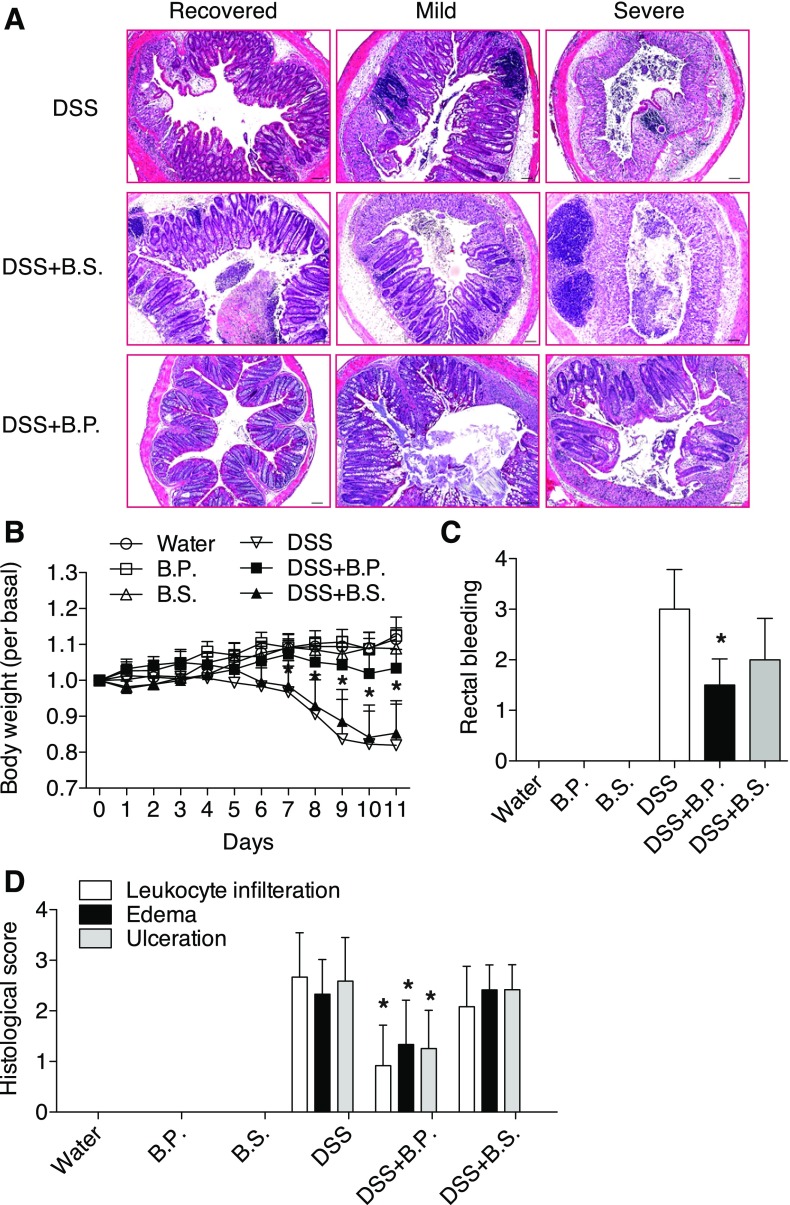Fig. 4.
B.P. facilitates mucosal wound healing. Mice were supplied with 4% dextran sulfate sodium (DSS) in drinking water for 7 days followed by 1% DSS for 4 days. One group of mice was supplied with B.P. and the other group of mice was supplied with B.S. via oral gavage. A: tissues were collected, fixed, and stained for hematoxylin and eosin. Tissues from the mice fed with B.P. showed facilitated wound healing. Bar, 100 μm; n = 16 per group. B: mice fed with B.P. showed increased body weight compared with B.S.-treated mice. Data are shown as means ± SD; n = 4–7 per group; *P < 0.05 vs. DSS+B.S. C: rectal bleeding was reduced in B.P.-treated mice compared with B.S.-treated mice. Data are shown as means ± SD; n = 7–15 per group; *P < 0.01 vs. DSS+B.S. D: histological scoring for several parameters of colonic inflammation including neutrophil infiltration, edema, and ulceration were graded on a scale of 0–4: 0, normal; 4, severe. Mice fed with B.P. showed reduced histological scores compared with B.S.-treated mice. Data are shown as means ± SD; n = 6 per group; *P < 0.05 vs. DSS+B.S.

